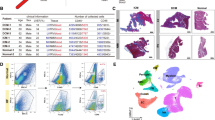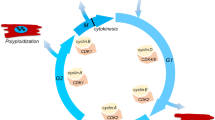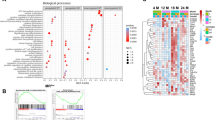Abstract
Autophagy suppression plays key a role during myocardial fibrosis (MF) progression. Exosomes from stem cells attenuate MF. The current study aimed to explain the antifibrosis effects of exosomes by focusing on microRNAs (miRs). MF was induced in rats using transverse aortic constriction (TAC) method and handled with exosomes from bone mesenchymal stem cells (BMSCs). The results of in vivo assays were verified with H9c2 cells. MiR expression profile was determined using microarray detection. The influence of miR-199a-3p modulation in vivo and in vitro on the antifibrosis effect of exosomes then was assessed. Exosomes attenuated MF by inhibiting inflammation, improving tissue structure, and inhibiting fibrosis-related indicators in TAC rats, and the effects were associated with autophagy activation. In H9c2 cells, exosomes suppressed cell viability, induced cell apoptosis, inhibited fibrosis-related indicators, while and the inhibition of autophagy by 3-MA would block the effect of exosomes. Based on the microarray detection, miR-199a-3p level was selected as therapeutic target. The inhibition of miR-199a-3p impaired the antifibrosis effects of exosomes on H9c2 cells, which was associated with autophagy inhibition. Collectively, exosomes from BMSCs exerted antifibrosis effects via the distant transfer of miR-199a-3p to heart tissues, which induced autophagy by inhibiting mTOR.











Similar content being viewed by others
Change history
03 August 2022
This article has been retracted. Please see the Retraction Notice for more detail: https://doi.org/10.1007/s13577-022-00761-x
References
Daniels A, van Bilsen M, Goldschmeding R, van der Vusse GJ, van Nieuwenhoven FA. Connective tissue growth factor and cardiac fibrosis. Acta Physiol (Oxf). 2009;195(3):321–38. https://doi.org/10.1111/j.1748-1716.2008.01936.x.
Ashrafian H, McKenna WJ, Watkins H. Disease pathways and novel therapeutic targets in hypertrophic cardiomyopathy. Circ Res. 2011;109(1):86–96. https://doi.org/10.1161/circresaha.111.242974.
Ambale-Venkatesh B, Lima JA. Cardiac MRI: a central prognostic tool in myocardial fibrosis. Nat Rev Cardiol. 2015;12(1):18–29. https://doi.org/10.1038/nrcardio.2014.159.
Lu C, Yang Y, Zhu Y, Lv S, Zhang J. An intervention target for myocardial fibrosis: autophagy. Biomed Res Int. 2018;2018:6215916. https://doi.org/10.1155/2018/6215916.
Bolt AM, Byrd RM, Klimecki WT. Autophagy is the predominant process induced by arsenite in human lymphoblastoid cell lines. Toxicol Appl Pharmacol. 2010;244(3):366–73. https://doi.org/10.1016/j.taap.2010.01.019.
Fang L, Zhou Y, Cao H, Wen P, Jiang L, He W, et al. Autophagy attenuates diabetic glomerular damage through protection of hyperglycemia-induced podocyte injury. PLoS ONE. 2013;8(4): e60546. https://doi.org/10.1371/journal.pone.0060546.
Bai J, Yao X, Jiang L, Zhang Q, Guan H, Liu S, et al. Taurine protects against As2O3-induced autophagy in livers of rat offsprings through PPARγ pathway. Sci Rep. 2016;6:27733. https://doi.org/10.1038/srep27733.
Li MH, Zhang YJ, Yu YH, Yang SH, Iqbal J, Mi QY, et al. Berberine improves pressure overload-induced cardiac hypertrophy and dysfunction through enhanced autophagy. Eur J Pharmacol. 2014;728:67–76. https://doi.org/10.1016/j.ejphar.2014.01.061.
Lin L, Tang C, Xu J, Ye Y, Weng L, Wei W, et al. Mechanical stress triggers cardiomyocyte autophagy through angiotensin II type 1 receptor-mediated p38MAP kinase independently of angiotensin II. PLoS ONE. 2014;9(2): e89629. https://doi.org/10.1371/journal.pone.0089629.
Wang X, Bai L, Liu X, Shen W, Tian H, Liu W, et al. Cardiac microvascular functions improved by MSC-derived exosomes attenuate cardiac fibrosis after ischemia-reperfusion via PDGFR-β modulation. Int J Cardiol. 2021. https://doi.org/10.1016/j.ijcard.2021.09.017.
Shen D, He Z. Mesenchymal stem cell-derived exosomes regulate the polarization and inflammatory response of macrophages via miR-21-5p to promote repair after myocardial reperfusion injury. Ann Transl Med. 2021;9(16):1323. https://doi.org/10.21037/atm-21-3557.
Nasser MI, Masood M, Adlat S, Gang D, Zhu S, Li G, et al. Mesenchymal stem cell-derived exosome microRNA as therapy for cardiac ischemic injury. Biomed Pharmacother. 2021;143: 112118. https://doi.org/10.1016/j.biopha.2021.112118.
Zhu X, Yan T, Cheng C, Ma J, Xiang J, Lv Y, et al. Mesenchymal Stem Cells (MSCs) in targeted drug delivery: literature review and exploratory data on migrating and differentiation capacities of bone MSCs into hepatic progenitor cells. Curr Top Med Chem. 2021. https://doi.org/10.2174/1568026621666210708092728.
Jin L, Zhang J, Deng Z, Liu J, Han W, Chen G, et al. Mesenchymal stem cells ameliorate myocardial fibrosis in diabetic cardiomyopathy via the secretion of prostaglandin E2. Stem Cell Res Ther. 2020;11(1):122. https://doi.org/10.1186/s13287-020-01633-7.
Chen H, Xia R, Li Z, Zhang L, Xia C, Ai H, et al. Mesenchymal stem cells combined with hepatocyte growth factor therapy for attenuating ischaemic myocardial fibrosis: assessment using multimodal molecular imaging. Sci Rep. 2016;6:33700. https://doi.org/10.1038/srep33700.
Mokhtari B, Badalzadeh R, Aboutaleb N. Modulation of autophagy as the target of mesenchymal stem cells-derived conditioned medium in rat model of myocardial ischemia/reperfusion injury. Mol Biol Rep. 2021;48(4):3337–48. https://doi.org/10.1007/s11033-021-06359-0.
Li Y, Yang R, Guo B, Zhang H, Zhang H, Liu S, et al. Exosomal miR-301 derived from mesenchymal stem cells protects myocardial infarction by inhibiting myocardial autophagy. Biochem Biophys Res Commun. 2019;514(1):323–8. https://doi.org/10.1016/j.bbrc.2019.04.138.
Racchetti G, Meldolesi J. Extracellular vesicles of mesenchymal stem cells: therapeutic properties discovered with extraordinary success. Biomedicines. 2021. https://doi.org/10.3390/biomedicines9060667.
Baglio SR, Rooijers K, Koppers-Lalic D, Verweij FJ, Pérez Lanzón M, Zini N, et al. Human bone marrow- and adipose-mesenchymal stem cells secrete exosomes enriched in distinctive miRNA and tRNA species. Stem Cell Res Ther. 2015;6(1):127. https://doi.org/10.1186/s13287-015-0116-z.
Masyuk AI, Masyuk TV, Larusso NF. Exosomes in the pathogenesis, diagnostics and therapeutics of liver diseases. J Hepatol. 2013;59(3):621–5. https://doi.org/10.1016/j.jhep.2013.03.028.
Hu J, Wang X, Cui X, Kuang W, Li D, Wang J. Quercetin prevents isoprenaline-induced myocardial fibrosis by promoting autophagy via regulating miR-223-3p/FOXO3. Cell Cycle. 2021;20(13):1253–69. https://doi.org/10.1080/15384101.2021.1932029.
Li X, Meng C, Han F, Yang J, Wang J, Zhu Y, et al. Vildagliptin attenuates myocardial dysfunction and restores autophagy via miR-21/SPRY1/ERK in diabetic mice heart. Front Pharmacol. 2021;12: 634365. https://doi.org/10.3389/fphar.2021.634365.
Palmulli R, van Niel G. To be or not to be secreted as exosomes, a balance finely tuned by the mechanisms of biogenesis. Essays Biochem. 2018;62(2):177–91. https://doi.org/10.1042/ebc20170076.
Matsuno Y, Kanke T, Maruyama N, Fujii W, Naito K, Sugiura K. Characterization of mRNA profiles of the exosome-like vesicles in porcine follicular fluid. PLoS ONE. 2019;14(6): e0217760. https://doi.org/10.1371/journal.pone.0217760.
Chen X, Xu X, Pan B, Zeng K, Xu M, Liu X, et al. miR-150-5p suppresses tumor progression by targeting VEGFA in colorectal cancer. Aging (Albany NY). 2018;10(11):3421–37. https://doi.org/10.18632/aging.101656.
Théry C, Witwer KW, Aikawa E, Alcaraz MJ, Anderson JD, Andriantsitohaina R, et al. Minimal information for studies of extracellular vesicles 2018 (MISEV2018): a position statement of the International Society for Extracellular Vesicles and update of the MISEV2014 guidelines. J Extracell Vesicles. 2018;7(1):1535750. https://doi.org/10.1080/20013078.2018.1535750.
Qu Y, Zhang Q, Cai X, Li F, Ma Z, Xu M, et al. Exosomes derived from miR-181-5p-modified adipose-derived mesenchymal stem cells prevent liver fibrosis via autophagy activation. J Cell Mol Med. 2017;21(10):2491–502. https://doi.org/10.1111/jcmm.13170.
Ke X, Yang R, Wu F, Wang X, Liang J, Hu X, et al. Exosomal miR-218-5p/miR-363-3p from endothelial progenitor cells ameliorate myocardial infarction by targeting the p53/JMY signaling pathway. Oxid Med Cell Longev. 2021;2021:5529430. https://doi.org/10.1155/2021/5529430.
Li Q, Jin Y, Ye X, Wang W, Deng G, Zhang X. Bone marrow mesenchymal stem cell-derived exosomal MicroRNA-133a restrains myocardial fibrosis and epithelial-mesenchymal transition in viral myocarditis rats through suppressing MAML1. Nanoscale Res Lett. 2021;16(1):111. https://doi.org/10.1186/s11671-021-03559-2.
Zuo Y, Qu C, Tian Y, Wen Y, Xia S, Ma M. The HIF-1/SNHG1/miR-199a-3p/TFAM axis explains tumor angiogenesis and metastasis under hypoxic conditions in breast cancer. BioFactors. 2021;47(3):444–60. https://doi.org/10.1002/biof.1702.
Li H, Huang F, Liu XQ, Liu HC, Dai M, Zeng J. LncRNA TUG1 promotes Ewing’s sarcoma cell proliferation, migration, and invasion via the miR-199a-3p-MSI2 signaling pathway. Neoplasma. 2021;68(3):590–601. https://doi.org/10.4149/neo_2021_201110N1198.
Yang X, Ma L, Wei R, Ye T, Zhou J, Wen M, et al. Twist1-induced miR-199a-3p promotes liver fibrosis by suppressing caveolin-2 and activating TGF-β pathway. Signal Transduct Target Ther. 2020;5(1):75. https://doi.org/10.1038/s41392-020-0169-z.
Kim SW, Kim HI, Thapa B, Nuwormegbe S, Lee K. Critical role of mTORC2-Akt signaling in TGF-β1-induced myofibroblast differentiation of human pterygium fibroblasts. Invest Ophthalmol Vis Sci. 2019;60(1):82–92. https://doi.org/10.1167/iovs.18-25376.
Laurino A, Spinelli V, Gencarelli M, Balducci V, Dini L, Diolaiuti L, et al. Angiotensin-II drives human satellite cells toward hypertrophy and myofibroblast trans-differentiation by two independent pathways. Int J Mol Sci. 2019. https://doi.org/10.3390/ijms20194912.
Jiang C, Xie N, Sun T, Ma W, Zhang B, Li W. Xanthohumol inhibits TGF-β1-induced cardiac fibroblasts activation via mediating PTEN/Akt/mTOR signaling pathway. Drug Des Devel Ther. 2020;14:5431–9. https://doi.org/10.2147/dddt.S282206.
Wang Y, Zhang H (2019) Regulation of autophagy by mTOR signaling pathway. In: Qin ZH (ed) Autophagy: biology and diseases. Advances in experimental medicine and biology, vol 1206. Springer, Singapore. https://doi.org/10.1007/978-981-15-0602-4_3
Farag MM, Khalifa AA, Elhadidy WF, Rashad RM. Thymoquinone dose-dependently attenuates myocardial injury induced by isoproterenol in rats via integrated modulations of oxidative stress, inflammation, apoptosis, autophagy, and fibrosis. Naunyn Schmiedebergs Arch Pharmacol. 2021;394(8):1787–801. https://doi.org/10.1007/s00210-021-02087-1.
Funding
There are no funding sources.
Author information
Authors and Affiliations
Corresponding author
Ethics declarations
Conflict of interest
The author declares that they have no conflict of interest.
Ethical approval
All the animal experiments were approved by the Institutional Animal Care and Use Committee (IACUC) of Shenyang Bioinform Company (China) (approval no. 20200111) and were carried out in accordance with international guidelines for care and use of laboratory animals.
Additional information
Publisher's Note
Springer Nature remains neutral with regard to jurisdictional claims in published maps and institutional affiliations.
This article has been retracted. Please see the retraction notice for more detail:https://doi.org/10.1007/s13577-022-00761-x
Supplementary Information
Below is the link to the electronic supplementary material.
Rights and permissions
Springer Nature or its licensor holds exclusive rights to this article under a publishing agreement with the author(s) or other rightsholder(s); author self-archiving of the accepted manuscript version of this article is solely governed by the terms of such publishing agreement and applicable law.
About this article
Cite this article
Fan, C., Wang, Q., Chen, Y. et al. RETRACTED ARTICLE: Exosomes derived from bone mesenchymal stem cells attenuate myocardial fibrosis both in vivo and in vitro via autophagy activation: the key role of miR-199a-3p/mTOR pathway. Human Cell 35, 817–835 (2022). https://doi.org/10.1007/s13577-022-00680-x
Received:
Accepted:
Published:
Issue Date:
DOI: https://doi.org/10.1007/s13577-022-00680-x




